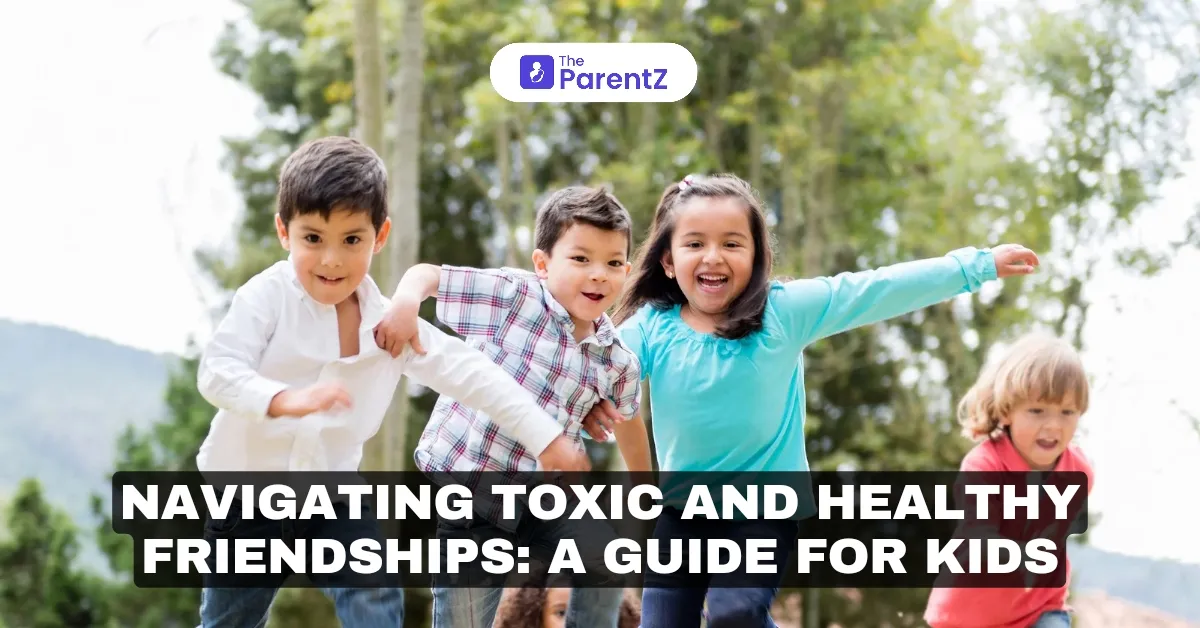Do you remember those friendships you cut down as a teenager? The ones you thought were so important, so defining? The sharp pain of severing those ties, the guilt that lingered like a phantom. You might have felt misunderstood, alone, or even betrayed. Now, imagine your child going through the same turmoil, feeling the same sting of loss. Imagine the fear, the confusion, and the hurt in their eyes. It's a heart-wrenching experience, isn't it?
To see your child grappling with emotions, you once knew so intimately. It's a reminder of the delicate nature of human connection and the importance of empathy and understanding. As a parent, it's your duty to be there for them and offer a safe space where they can communicate their feelings without judgment. To help them navigate the complexities of friendship and heartbreak with compassion and kindness.
Understanding Healthy Friendships
As kids grow up, they form friendships that can have a huge impact on their lives. These relationships can provide support, companionship, and a sense of belonging. However, not all friendships are healthy. Some can be toxic, leading to negative emotions and harmful behaviors. It's important for kids to understand the difference between healthy and toxic friendships.
Healthy friendships are meant to be built on trust, respect, and mutual support. They make you feel good about yourself and bring positive energy into your life. Friends who are healthy for you:
- Trust you: They share their thoughts and feelings with you without fear of judgment.
- Respect you: They treat you with kindness and respect. They respect your personal space and feelings.
- Support you: They are there for you during good times and bad. They accept you for who you are without trying to change you. They appreciate your uniqueness and celebrate it.
- Make you happy: They bring out the best in you and make you feel good about yourself. They cheer for you during tough times and celebrate successes together. They are there for you, even when it's inconvenient.
In contrast, toxic friendships often lack these qualities and can leave you feeling drained or anxious.
Recognizing Toxic Friendships
Toxic friendships can be harmful to your child's emotional well-being. They may involve bullying, manipulation, or constant criticism. Friends who are toxic for you:
- Bullying or manipulating you: They may put you down, control you, or make you feel bad about yourself.
- Making you feel negative: They may make you feel sad, anxious, or stressed.
- Isolating you: They may try to keep you away from other friends or family members.
- Making you feel like you have to keep secrets: They may expect you to keep secrets from others.
Accepting the Reality of Fading Friendships
Sometimes friendships fade naturally as children grow and change. This can be a painful realization for kids who may feel like they are losing a part of themselves. It's important to help your child understand that not all friendships are meant to last forever. Here are some gentle ways to help your child cope with this reality:
- Reflect on Memories: Encourage them to cherish the good times spent with that friend without dwelling on what has changed. Remind them that those memories are valuable, even if the friendship has faded.
- Emphasize Growth: Explain that people evolve over time. Just as they grow, so do their friends. It's okay if interests diverge; this is part of life.
- Celebrate New Beginnings: Encourage your child to look forward to new friendships that align better with their current self. Remind them that every ending opens the door to new beginnings.
Dealing with Overwhelming Emotions
It's natural for children to feel overwhelmed when dealing with the complexities of friendships. Here are some strategies to help them process these emotions:
- Open Conversations: Create a safe space for your child to express their feelings about their friendships. Let them know it's okay to feel sad, confused, or even relieved when moving on from a friendship.
- Journaling: Encourage your child to write down their feelings about their friendships. This can help them process emotions and gain clarity on their experiences.
- Engage in Activities: Sometimes, distraction can be helpful. Encourage your child to engage in activities they enjoy—whether it's sports, arts, or spending time with family—this can help lift their spirits.
Teaching Boundaries and Self-Worth
As children learn about friendships, it is crucial to instill a sense of self-worth within them. Teach them that they don't lose real friends by standing up for themselves or setting boundaries; instead, they make room for healthier relationships. Encourage them to remember:
- You Are Worthy: Remind your child that they deserve friends who treat them well and make them feel good about themselves.
- Setting Boundaries is Healthy: Teach your child that it's okay to say no or distance themselves from friends who make them uncomfortable or unhappy.
- Real Friends Support Each Other: Genuine friends uplift one another rather than bring each other down.
Ending a friendship can be a difficult experience for a child. It's important to let them know that it's okay to feel sad or angry. Remind them that they deserve to have healthy, positive relationships in their life. Encourage them to focus on the good things in their life and seek out new friendships.
Conclusion
In conclusion, navigating friendships can be complex for children, but with your guidance and open communication, they can learn to recognize healthy versus toxic relationships. Remember, healthy friendships are an important part of childhood development. By helping your child understand the difference between healthy and toxic friendships, you are equipping them with the tools they need to build strong, positive relationships.








Be the first one to comment on this story.